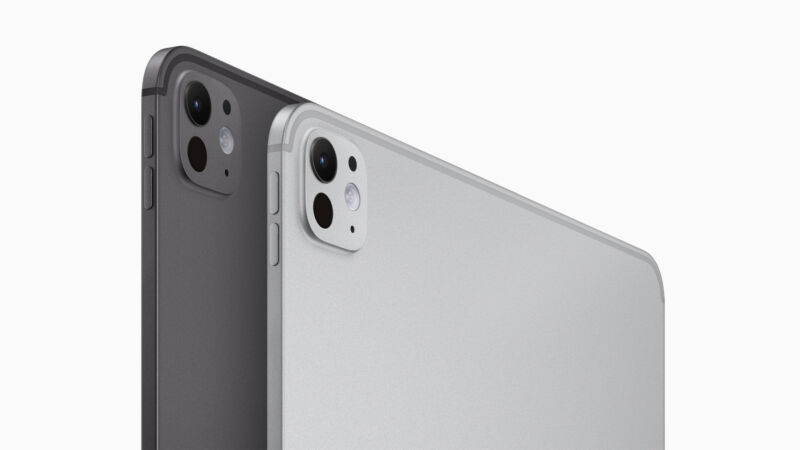
Apple
When Apple announced the Apple M4 chip during its iPad Pro event yesterday, it mentioned that the chip came with four high-performance CPU cores.
Those short, easy-to-miss words almost always mean a lower-end version of the chip is coming No Multiple CPU cores, and Technical specifications page for the new iPad Pro Here are the full details: iPad Pros with 256GB or 512GB of storage use a version of the M4 with three high-performance CPU cores and six smaller performance cores. Only the models with 1TB and 2TB storage have four high-performance CPU cores enabled M4.
The 256GB and 512GB models ship with 8GB of RAM, where the 1TB and 2TB models come with 16GB of memory. Although these changes are clearly mentioned on the technical specifications page, the actual configuration page for iPad Pros on the Apple Online Store gives no indication that upgrading the storage will improve your CPU and RAM.
All M4 iPad Pros ship with a 10-core GPU, 16-core Neural Engine and 120 GB/s memory bandwidth. And all M2 iPad Air models ship with the same fully-powered M2 chip and 8GB of RAM.
This differs from how Apple handles upgrades for Macs, which typically allow for more flexible build-to-order configurations, where you can upgrade individual specs without upgrading everything at once.
This phenomenon is not new, at least not for RAM. The 2018 iPad Pro with Apple’s A12X—a move to a modern slim bezel design—includes 4GB of RAM in base models and 6GB of RAM in the 1TB model. The M1 And M2 iPad Pros Each ships with 8GB of RAM in their lower-end configurations and 16GB in the 1TB and 2TB configurations. However, this is the first time Apple has paired the iPad’s CPU performance with storage capacity, and it means the base iPad Pros M2 models won’t offer as big an upgrade as the more expensive versions.
As for why Apple does this to its CPUs, it doesn’t Just A way to sell potential buyers to high-end iPads. Silicon chips often come out with minor defects, especially when built using brand-new manufacturing processes like the second-generation 3 nm process used for the M4. Selling a partially disabled version of the chip allows Apple (and other chipmakers) to use imperfect silicon dies instead of throwing them out, a process known as “pinning.”
The 1TB and 2TB iPod Pros can be upgraded with Apple’s “Nano-Texture Glass,” which gives your screen a glossy, flatter matte finish than glass. A nano-texture upgrade costs $100 on top of the $600 you’ll spend upgrading storage and other components.